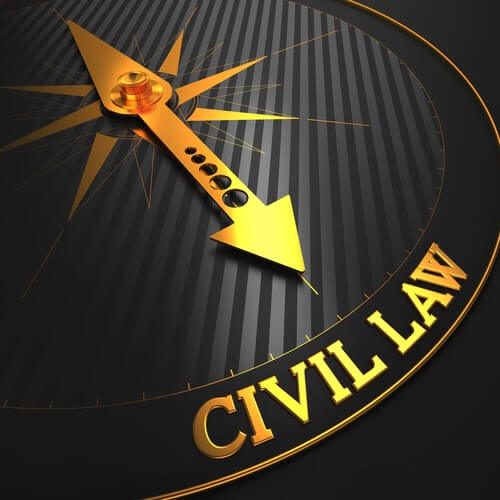A Doctor of Civil Law offers remarkably distinctive, insightful, and original publications that contribute to the study of law or politics. Due to high standards in law theory and practice, currently accredited doctorate programs in law demand student presence on campus. Dissertation writing requires direct attention from supervisors to come up with a publishable work.
There are various paths you can take to become a lawyer or specialize in law. Do you want to be a certified expert in the private rights of citizens? Are you fascinated by intensive research concerning Civil Law? Enrolling in a D.C.L. program lets you earn a prominent spot in the field.
______________________________
Best Doctor of Civil Law Degree Programs
LOUISIANA STATE UNIVERSITY

JURIS DOCTOR AND OPTIONAL GRADUATE DIPLOMA IN COMPARATIVE LAW DEGREES
School Highlights: Louisiana State University has numerous options for students to complete the Juris Doctor degree. For example, there are multiple Dual Degree programs for those who have not completed their master’s, such as the JD and Master’s of Business Administration, as well as the signature program that includes a fifteen-credit graduate diploma.
The general curriculum is designed to enhance students’ understanding of leadership roles applicable to the Civil Code and Civil Law. Upon completing the foundational coursework, students move on to a more flexible side of the program that allows them to choose their own pathway. The LSU Law Center is known as leader among law schools due to the “globalization of its curriculum.”
Coursework Sample:
- Common Law Trusts, Estates, & Fiduciary Obligations
- International Intellectual Property
- Criminal Law
Campus Location: Baton Rouge, LA
Accreditation:
- Higher Learning Commission
Acceptance Rate: 71% Retention Rate: 86% Graduation Rate: 68%
LEARN MORE ABOUT LOUISIANA STATE UNIVERSITY’S JURIS DOCTOR DEGREE
UNIVERSITY OF WISCONSIN-MADISON

DOCTOR OF JURIDICAL SCIENCE
School Highlights: The Doctor of Juridical Science (SJD) program at the University of Wisconsin-Madison is an excellent program for students pursuing careers in research, education, or as legal scholars.
It is a research-based program emphasizing learning through writing, seminars, and mandatory workshops. This degree is strictly designed for those with an educational background in law from an American law school.
It is very affordable for both in-state and out-of-state students compared to most doctoral degrees, and there are exciting assistantships, fellowships, internships, and scholarship opportunities available, such as the William H. Hastie Fellowship for lawyers of color to prepare for future careers in education.
Concentration Options:
- Criminal Law
- Family Law
- International Law
- Labor and Employment Law
- Estate Planning
- Real Estate Law
- Business Law
Campus Location: Madison, WI
Accreditation:
- Higher Learning Commission
Acceptance Rate: 49% Retention Rate: 95% Graduation Rate: 88%
LEARN MORE ABOUT THE UNIVERSITY OF WISCONSIN-MADISON’S DOCTOR OF JURIDICAL SCIENCE (SJD) DEGREE
UNIVERSITY OF PITTSBURGH

DOCTOR OF JURIDICAL SCIENCE (SJD) PROGRAM
School Highlights: The University of Pittsburgh supplies an outstanding Doctor of Juridical Science (SJD) program and an equally impressive Juris Doctor degree.
The former is PittLaw’s most advanced doctorate and is designed for those who are pursuing paths in research, writing, and independent study.
The latter is a five-year curriculum with a focus on legal reasoning and analysis, and that allows students to design their own coursework. It also provides avenues for students to earn Joint Degrees in many different areas, such as Public Health, Bioethics, and Arts Management.
The SJD does not include any formal course requirements, only that students participate in an ungraded, non-credit colloquium. Graduates from either program have an incredibly high level of esteem in their profession and carry on to provide pivotal legal research findings.
Degree Options:
- Doctor of Juridical Science (SJD)
- Juris Doctor (JD)
Campus Location: Pittsburgh, PA
Accreditation:
- Higher Learning Commission
Acceptance Rate: 49% Retention Rate: 93% Graduation Rate: 83%
LEARN MORE ABOUT THE UNIVERSITY OF PITTSBURGH’S DOCTOR OF JURIDICAL SCIENCE (SJD) PROGRAM
UNIVERSITY OF WASHINGTON

PH.D. IN LAW
School Highlights: The University of Washington has offered this Doctor of Philosophy in Law since 1966. Today, it is one of the most competitive and highly advanced legal doctorates in America. It provides an expansive curriculum that focuses on policy, legal theory, research methodologies, jurisprudence, and dissertation preparation.
Students have university-wide access to individual schools, institutes, and research centers within UW, giving them unparalleled access to complete their in-depth studies and dissertations.
This is a three-year, 90-credit Ph.D. in Law program, two years of which are spent completing coursework on campus. Alumni are now committed leaders in the legal profession who are closely tied to their alma mater.
Coursework Sample:
- Doctoral Dissertation Seminar
- Jurisprudence
- Ph.D. Colloquium
Campus Location: Seattle, WA
Accreditation:
- Northwest Commission on Colleges and Universities
Acceptance Rate: 48% Retention Rate: 85% Graduation Rate: 83%
LEARN MORE ABOUT THE UNIVERSITY OF WASHINGTON’S PH.D. IN LAW
Frequently Asked Questions
What is Civil Law?
As Civil Law is a generally broad concept, we need to define precisely how and on which specific aspects of it D.C.L. applies.
Civil Law pertains to policies aimed at protecting the privacy rights and affairs of citizens. This branch of law provides legal remedies for disputes surrounding family law and property ownership. In contrast to Criminal Law which directly charges an offender on account of their violation, Civil Law generally dictates that infractions be resolved through compensation.
There are four general categories of Civil Law: Tort Law, Contract Law, Property Law, and Family Law.
Tort Law concerns wrongdoings that result in physical injury or property damage property due to negligence, intentional tort, or strict liability. Negligence refers to unintentional yet damaging actions, such as in a car crash. As the term suggests, intentional torts are the opposite of negligence, including assault and battery. Strict liability meanwhile holds a party liable for the safety of the other, such as extreme sports facilities’ efforts to prevent accidents.
A “breach of contract” is charged to a party that violates an agreement. Under Contract Law, this lawsuit is tried before a civil court.
Property Law is a category of Civil Law concerning personal property or real property disputes. This category also covers trespassing and depriving a plaintiff of his/her property.
Marriage, divorce, annulment, property division, child custody, child support, adoption, and alimony, among others, fall under Family Law.
With a Civil Law doctorate, graduates are expected to be conversant in these law systems and conduct in-depth study and research to contribute to the discipline. Dissertation topics include reforms in marriage laws and Civil Law.
What sort of accreditation should I look for in a school offering the Doctor of Civil Law degree?
The American Bar Association (ABA) accredits all law programs in the country.
In some states such as California, colleges and universities award the law degree with regional accreditation from the California Bar Association (CBA). To date, however, there is no non-ABA-accredited law school that offers a doctorate in law in California. As of 2018, only Juris Doctor (J.D.) and Master of Laws (LL.M.) degrees are available.
How do I earn my D.C.L. degree?
The Doctor of Civil Law (D.C.L) is a unique degree awarded by a few of the most prestigious law schools around the world. Most universities do not use the “D.C.L.” title. The standard practice instead is to award the Doctor of Jurisprudence (J.S.D. or S.J.D.) degree. Students who want to specialize in Civil Law can enroll in a J.S.D. or S.J.D. program with research dissertations and coursework that concentrate on civil litigation.
Your D.C.L program length depends on the law school you are attending. Some students complete their D.C.L., J.S.D., S.J.D., or Ph.D. in law programs in two years. In most cases, however, law schools require the applicant to study Master of Laws on campus before proceeding to a doctorate program. This policy extends the years of schooling to at least four.
The dissertation is the primary requirement for a student to graduate with a doctorate in Civil Law. Students work closely with a supervisor who has the authority to terminate the program if the graduate student shows poor progress in writing the dissertation.
What type of degree do I need to pursue research or educate others in Civil Law?
Any lawyer with a doctorate, be it D.C.L., J.S.D., S.J.D., or Ph.D. is qualified to work as an educator in law schools. Their advanced knowledge in Civil Law, coupled with proficient courtroom experience, signifies their credibility in educating future legal scholars. As a legal researcher, a Doctor of Civil Law supplies relevant literature, such as a survey of case studies, that are deemed useful to the field of law.
What kind of career and salary can I expect with my D.C.L. degree?
Lawyers who seek a D.C.L. or a doctorate equivalent in Civil law often end up in leadership positions in law firms. A D.C.L. or J.S.D. name suffix often appears in senior positions in legal offices and judiciary courts. With this title, they are also credible to teach in law schools.
According to the Bureau of Labor Statistics, a lawyer has an annual median salary of $135,740. Thus, D.C.L. degree holders earn 28% to 30% more than that figure. In high-profile law firms, legal managers and executives get up to seven-digit paychecks. The reputation of law firms significantly influences their revenues and professional fees; having a lawyer with a D.C.L. on their roster attracts more clients.
Meanwhile, judges make an average of $128,610 per year. Experienced magistrates earn more than beginners.
Do I need a license to be a lawyer specializing in Civil Law?
There is no specific license for lawyers who wish to specialize in Civil Law. Passing the bar with a J.D. degree is enough to become a lawyer in the US. If you have a D.C.L. degree, your horizons widen as your chance of success in climbing the ladder escalates.
What schools offer Doctor of Comparative Law degrees?
In the US, only the Louisiana State University in Baton Rouge, Louisiana specifically awards the D.C.L. degree with options to specialize in either Civil Law, Criminal Law, or Comparative Law.
The University of Wisconsin in Madison, Wisconsin awards the Doctor of Jurisprudence or S.J.D. degree with the freedom to concentrate research in civil litigation. However, you can only proceed with earning your S.J.D degree after completing the Master’s program.
The following law schools also award the J.S.D. or S.J.D. degree with an option to specialize in Civil Law: the University of Pittsburgh in Pittsburgh, Pennsylvania, and the University of Washington in Seattle, Washington.
